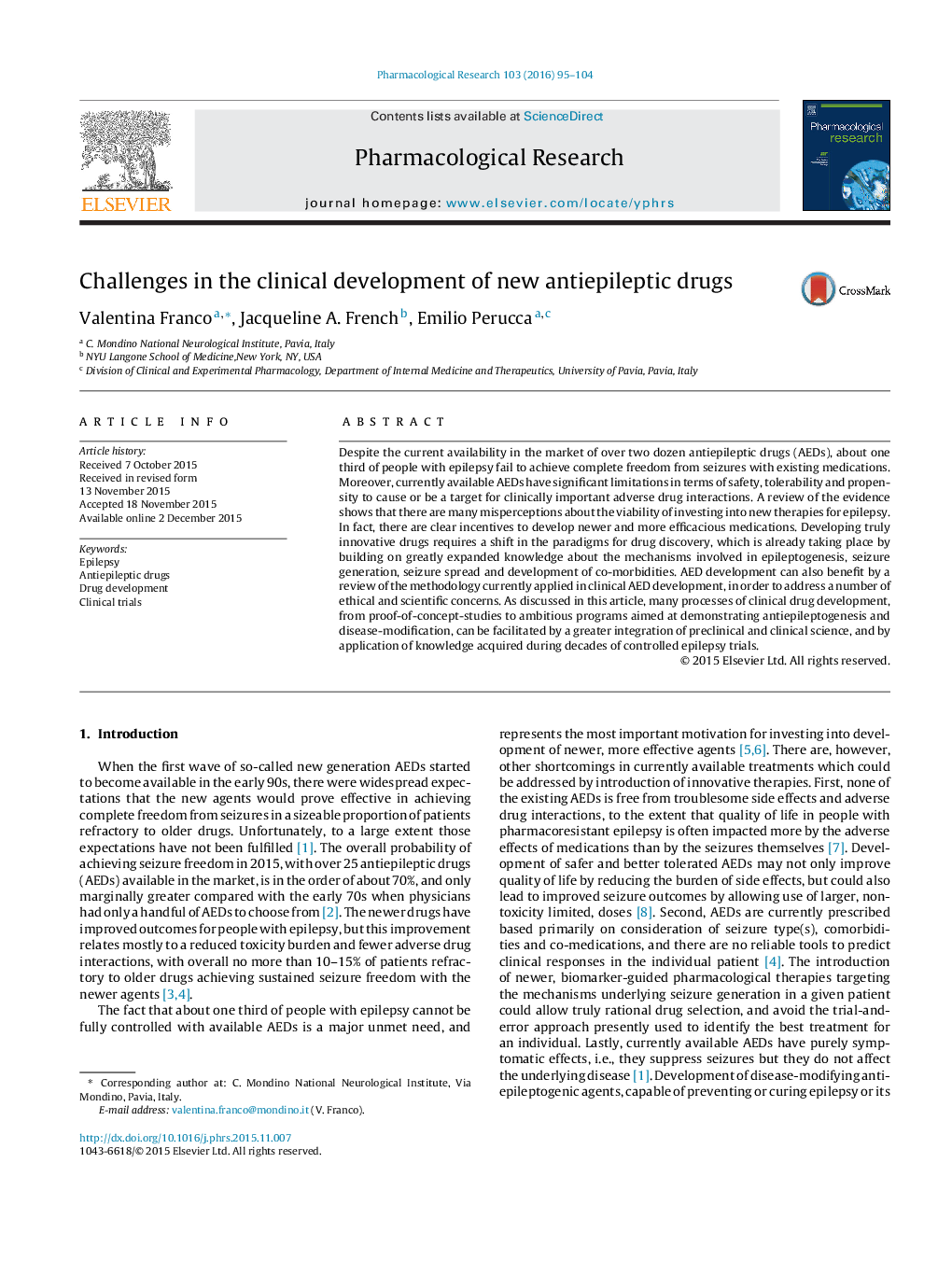| Article ID | Journal | Published Year | Pages | File Type |
|---|---|---|---|---|
| 5843071 | Pharmacological Research | 2016 | 9 Pages |
Abstract
Despite the current availability in the market of over two dozen antiepileptic drugs (AEDs), about one third of people with epilepsy fail to achieve complete freedom from seizures with existing medications. Moreover, currently available AEDs have significant limitations in terms of safety, tolerability and propensity to cause or be a target for clinically important adverse drug interactions. A review of the evidence shows that there are many misperceptions about the viability of investing into new therapies for epilepsy. In fact, there are clear incentives to develop newer and more efficacious medications. Developing truly innovative drugs requires a shift in the paradigms for drug discovery, which is already taking place by building on greatly expanded knowledge about the mechanisms involved in epileptogenesis, seizure generation, seizure spread and development of co-morbidities. AED development can also benefit by a review of the methodology currently applied in clinical AED development, in order to address a number of ethical and scientific concerns. As discussed in this article, many processes of clinical drug development, from proof-of-concept-studies to ambitious programs aimed at demonstrating antiepileptogenesis and disease-modification, can be facilitated by a greater integration of preclinical and clinical science, and by application of knowledge acquired during decades of controlled epilepsy trials.
Related Topics
Health Sciences
Pharmacology, Toxicology and Pharmaceutical Science
Pharmacology
Authors
Valentina Franco, Jacqueline A. French, Emilio Perucca,
